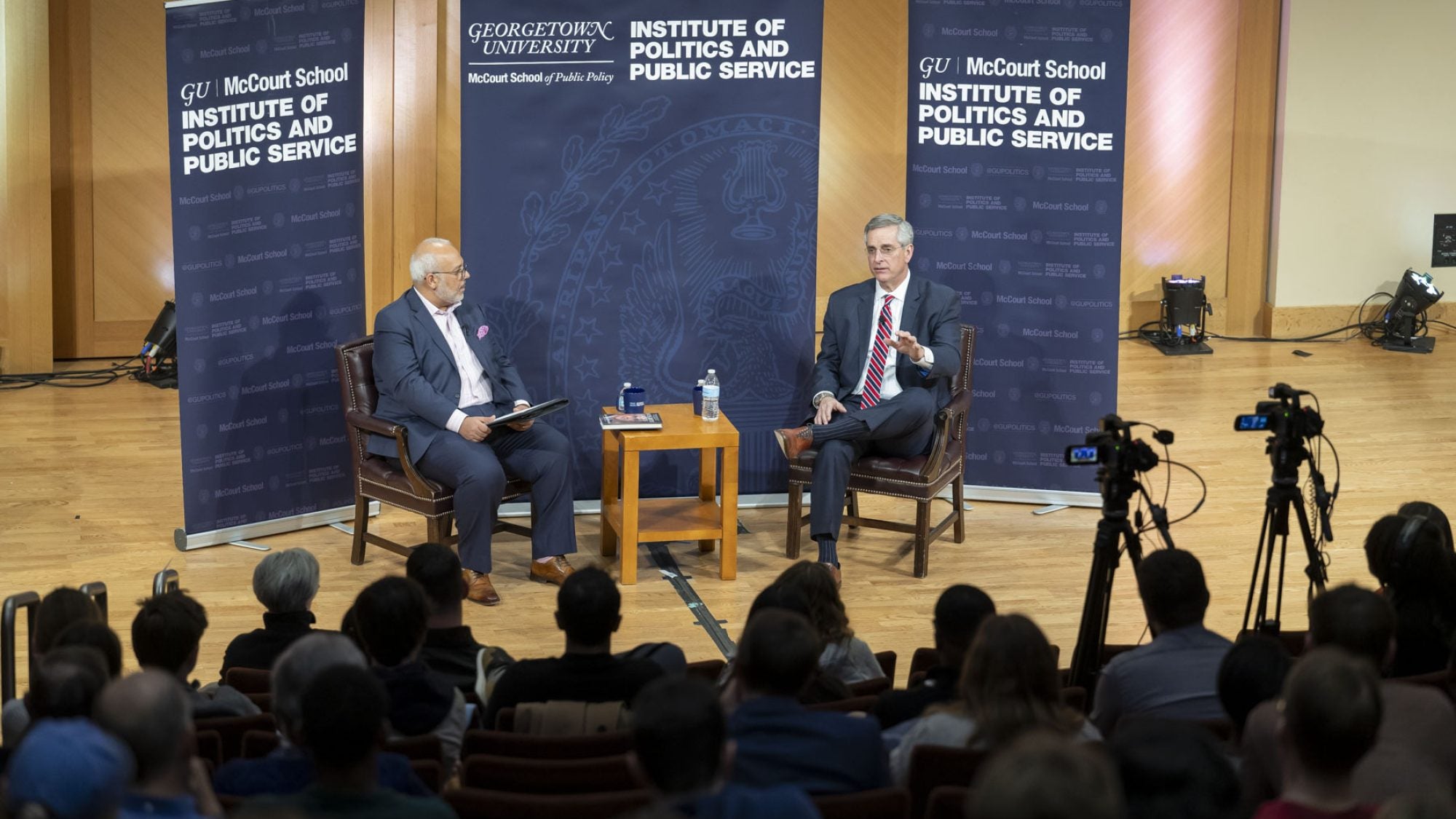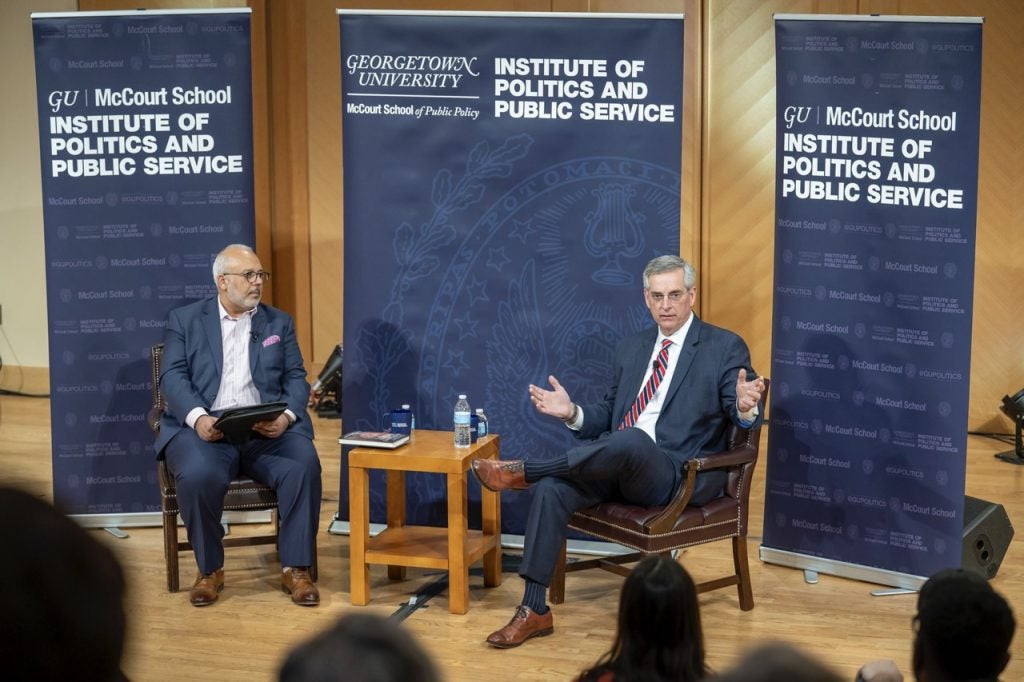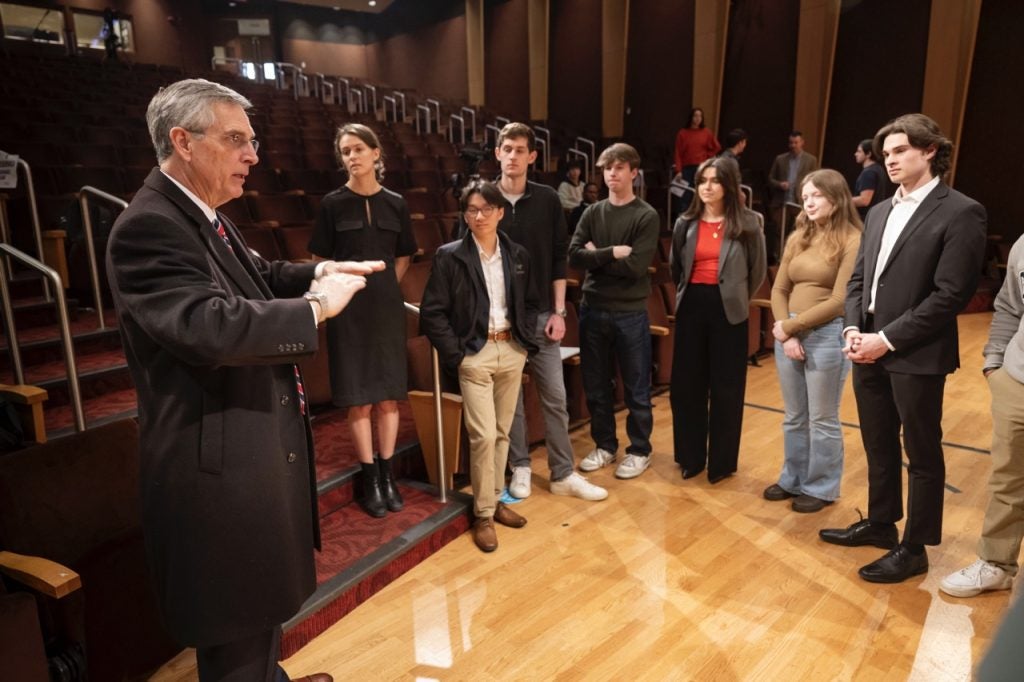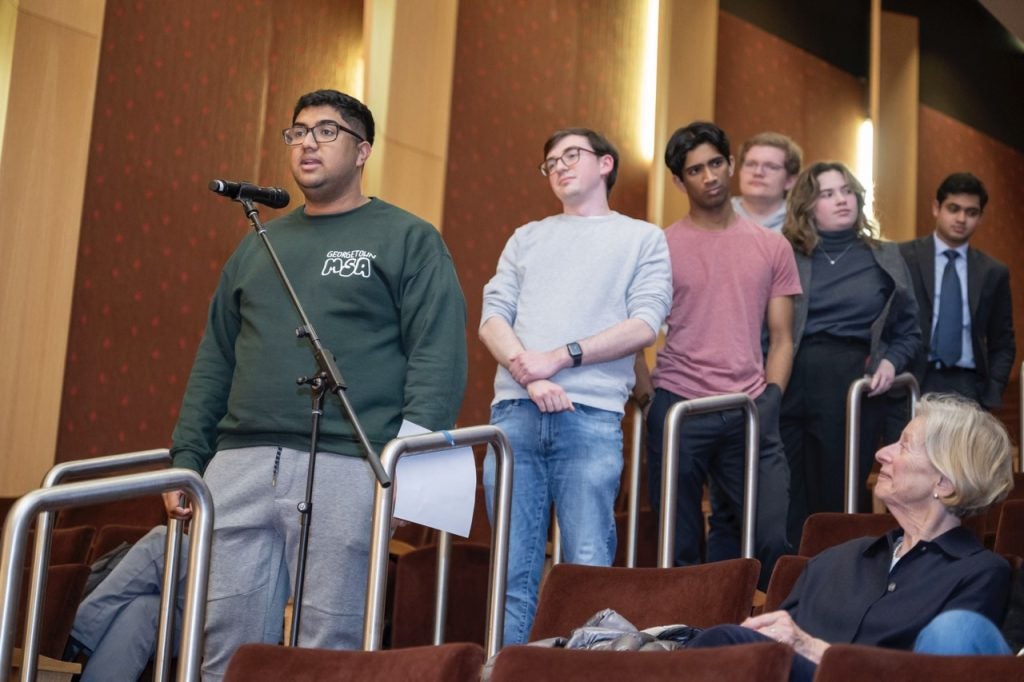On Wednesday, February 7, 2024 students gathered in Georgetown University’s Lohrfink Auditorium to hear from Georgia Secretary of State Brad Raffensperger about trust in elections
Catherine Hughes (SFS ‘27), a student from Georgia and former member of GU Politics Campaign Bootcamp pre-orientation program, introduced Raffensperger, highlighting his role in overseeing the election process in Georgia and his dedication to election security and accessibility in the state. Mo Elleithee, Executive Director of GU Politics, joined Secretary Raffensperger on stage to moderate the discussion.
Elleithee kicked off the conversation by asking Raffensperger about the significance of the 2020 presidential election, in which former President Donald Trump contacted Raffensperger to contest the election results in Georgia. Raffensperger explained that he was respectful of Trump’s authority and position, but he hoped providing the former president with data and information about the results would convince him of the integrity of Georgia’s election.
Raffensperger also discussed his efforts to push back against misinformation and conspiracy regarding the 2020 election outcome. He emphasized the importance of responding to voters’ anger respectfully with facts and information.
Elleithee also asked Raffensperger about the role of mail-in-ballots. Raffensperger said that 2020 was an unusual year of adjusting to absentee-voting because of the COVID-19 pandemic. He expressed that the secure infrastructure of processing mail-in ballots can take time which he understands might breed mistrust and conspiracy.
Raffensperger highlighted the efforts of Georgia’s election workers to offer different voting options and to count ballots in a timely manner.
“Accessibility with security, building trust— I think that really pulls our social fabric back together when we have people trying to pull it apart,” Raffensperger said.
Regarding the prevalence of fraud and misinformation, Raffensperger emphasized the strength of election security in Georgia and the United States. He noted that policies such as photo ID laws create confidence in the system and said, “I believe fraud— in our state and nationwide— is not as large as people say it is.”
Elleithee asked Raffensperger if he was concerned about democratic institutions in the upcoming election year, particularly with Trump as the likely Republican candidate. Regarding Trump and other politicians who have fueled mistrust in elections, Raffensperger said, “if they win, they will win fair and square. And if they lose, they will lose fair and square.”
Moreover, Raffensperger implored elected officials to do the right thing. “People have fought and died for our freedom,” he said. “Honor their sacrifice by just doing your job.”
Jordan Park (C‘27), asked about the impact of redistricting on elections. Raffensperger emphasized that redistricting commissions will always be political but state legislatures will do the best they can and will face legal challenges if there are issues.
Another student, Naveen Shah (C‘25), brought up the future of voting systems, asking Raffensperger what he thought about the possibility of secure voting from personal devices. Raffensperger agreed that the next generation of voters might vote from a smartphone and said, “Once we figure out that security element, that’s really where we’ll go.” He emphasized that this would put the voter back in charge.
Raffensperger responded to other students about why he chose to run for Secretary of State, his role in the 2020 election and the collaboration between state and county-level election offices. He affirmed his commitment to secure, accessible elections and encouraged the audience to have confidence in the nation’s democracy.
This article was written by Jane Wright, a first-year student in the McCourt School of Public Policy.



